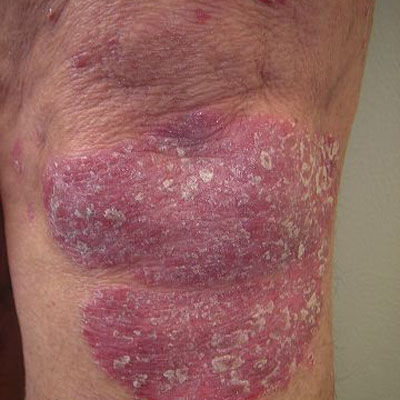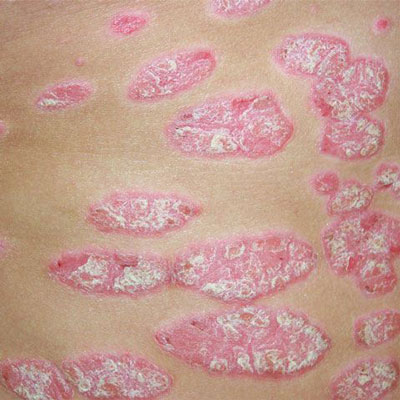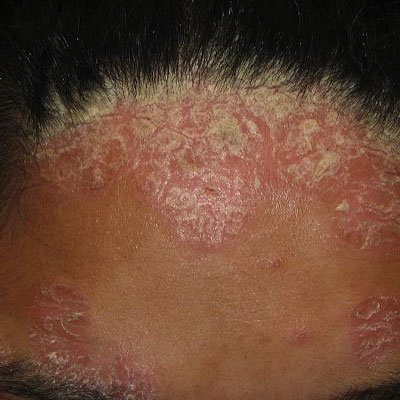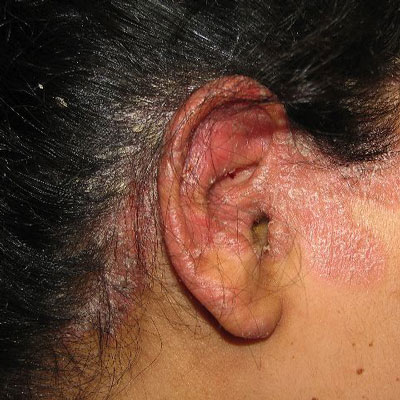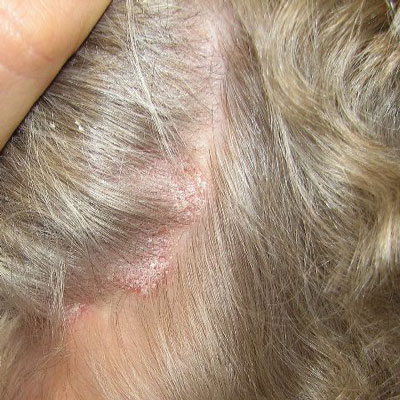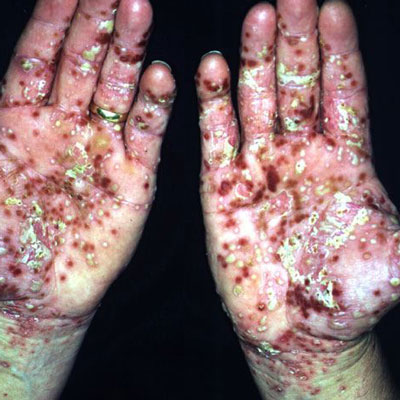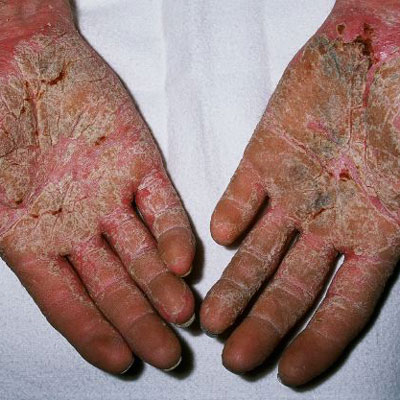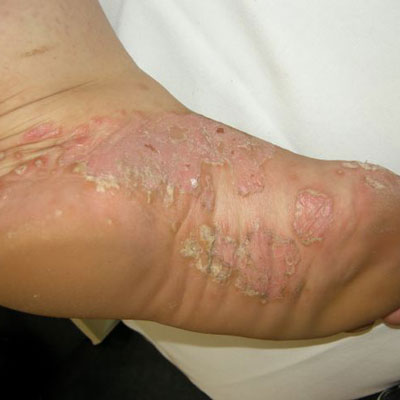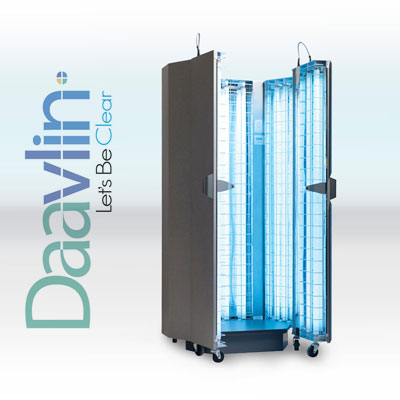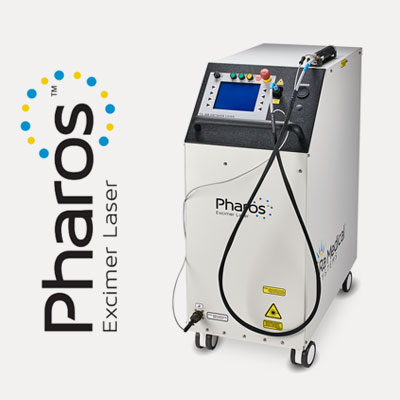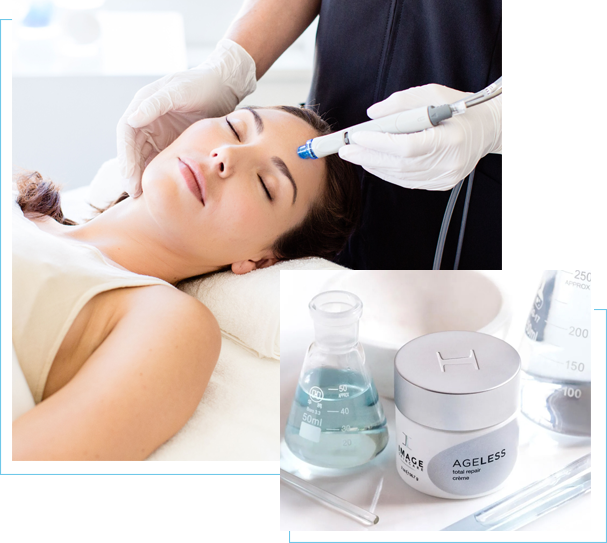What causes psoriasis?
The underlying problem in psoriasis is a dysfunctional immune system. There are a variety of genes that are thought to be related to psoriasis, but genetic testing is not yet useful. Interestingly, not everyone who inherits these genetic factors develops psoriasis. It is likely that external triggers are also important.
Triggers of psoriasis
Stress – Stress is a MAJOR factor in bringing out psoriasis. It is not at all unusual for patients to have a flareup due to job loss, relationship problems, a death in the family, or other major changes in life. Activities that reduce stress (includeing stress reduction classes, yoga, or other relaxing activities) can lead to improvement and are recommended.
Injury to the skin – Any trauma to the skin can bring on psoriasis (known as the Koebner phenomenon). This is part of the reason why psoriasis often shows up near the elbows and knees. Rubbing, scratching, and friction can all induce the development of patches of psoriasis. Other things that injure or irritate the skin, like burns and infections, can also stimulate it as well.
Drugs and medicines – There is a long list of medications that can make psoriasis worse, such as Lithium, Plaquenil, Inderal, and Indomethacin.
Treatments for psoriasis
Presently, there is no cure for this disease, but it can be managed and clearance is achievable. Listed below are some of the common treatment options. They are arranged roughly in order of effectiveness AND risk – as you go down the list, the medicines become more potent and riskier.
Topical treatments for psoriasis
Almost every patient should try topical medicines first and step up to more aggressive treatment if necessary.
- Clobetasol is a super-potent steroid that is very good at reducing scaling, redness, and itching. If it is used for too long, it WILL lead to thinning of the skin, so once a patch of psoriasis thins out, you should use Clobetasol less often. Using it for two days each week tends to be safe for maintenance.
- Vectical and Dovonex are super-potent vitamin D medicines that slow down growth in the skin. They don’t cause thinning like steroids, but are expensive. Oral vitamin D doesn’t have the same effect and it doesn’t help to take more if it is a supplement. These medicines are useful because they can help help steroids work better and once things are under control they can help with maintenance. One strategy is to use clobetasol to thin the psoriasis, then use Vectical or Dovonex to keep it that way.
- Tar has been used for ages, and for some patients can be helpful, but it is smelly and messy.
- Some of the topical medicines are expensive, but check the company websites for rebates/coupons/etc.
Light or phototherapy for psoriasis
70% of patients see some improvement with natural sunlight. For most patients in Seattle, this means that their disease improves quite a bit in the summer. In the winter, their psoriasis often flares. A more effective form of light treatment is phototherapy which uses narrowband ultraviolet B light. Narrowband works faster than sunlight and gives much better results. Most importantly, it does not show the same carcinogenic effect that sunlight or tanning beds show. Treatments are usually performed 2-3 times a week for a treatment course of 30 treatments after which patients are transitioned to once weekly maintenance treatments. Patients usually do not need to bother with topical treatments when they are doing phototherapy.
We are the only clinic in Issaquah with phototherapy and one of only a few in the Seattle area. Depending on the part of the body that requires treatment, we will recommend treatment in either our phototherapy cabinet or with our Pharos™ excimer laser. The Pharos laser works well for areas like the scalp that can’t be easily treated with the Daavlin booth.


